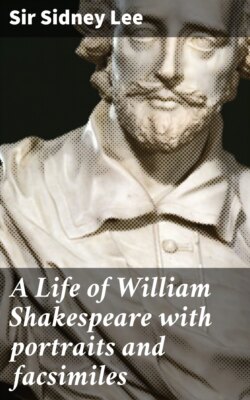Читать книгу A Life of William Shakespeare with portraits and facsimiles - Sir Sidney Lee - Страница 69
На сайте Литреса книга снята с продажи.
Early plays doubtfully assigned to Shakespeare.
ОглавлениеTable of Contents
Two plays of uncertain authorship attracted public attention during the period under review (1591–4)—‘Arden of Feversham’ (licensed for publication April 3, 1592, and published in 1592) and ‘Edward III’ (licensed for publication December 1, 1595, and published in 1596). Shakespeare’s hand has been traced in both, mainly on the ground that their dramatic energy is of a quality not to be discerned in the work of any contemporary whose writings are extant. There is no external evidence in favour of Shakespeare’s authorship in either case. ‘Arden of Feversham’ dramatises with intensity and insight a sordid murder of a husband by a wife which took place at Faversham in 1551, and was fully reported by Holinshed. The subject is of a different type from any which Shakespeare is known to have treated, and although the play may be, as Mr. Swinburne insists, ‘a young man’s work,’ it bears no relation either in topic or style to the work on which young Shakespeare was engaged at a period so early as 1591 or 1592. ‘Edward III’ is a play in Marlowe’s vein, and has been assigned to Shakespeare on even more shadowy grounds. Capell reprinted it in his ‘Prolusions’ in 1760, and described it as ‘thought to be writ by Shakespeare.’ Many speeches scattered through the drama, and one whole scene—that in which the Countess of Salisbury repulses the advances of Edward III—show the hand of a master (act ii. sc. ii.) But there is even in the style of these contributions much to dissociate them from Shakespeare’s acknowledged productions, and to justify their ascription to some less gifted disciple of Marlowe. [72a] A line in act ii. sc. i. (‘Lilies that fester smell far worse than weeds’) reappears in Shakespeare’s Sonnets’ (xciv. l. 14). [72b] It was contrary to his practice to literally plagiarise himself. The line in the play was doubtless borrowed from a manuscript copy of the ‘Sonnets.’
